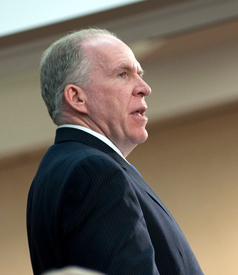
TechCrunch 5 December 2010
Editor’s note: This is the third of a three-part guest post by venture capitalist Mark Suster of GRP Partners on “Social Networking: The Past, Present, And Future.” Read Part I and Part II first. This series is an adaptation of a recent talk Suster gave at the Caltech / MIT Enterprise Forum on “the future of social networking.” You can watch the video here , or you can scroll quickly through the Powerpoint slides embedded at the bottom of the post or here on DocStoc. Follow him on Twitter @msuster.
In my first post I talked about the history of social networking from 1985-2002 dominated by CompuServe, AOL & Yahoo! In the second post I explored the current era which covers Web 2.0 (blogs, YouTube, MySpace, Facebook), Realtime (Twitter), and mobile (Foursquare). Is the game over? Have Facebook & Twitter won or is their another act? No prizes for guessing … there’s always a second (and third, and fourth, and fifth) act in technology. So where is social networking headed next? I make eight predictions below.
Phi Beta Iota: As is customary, when persistent links exist, we point to the original. Below we list the eight points, each point is amplified in the original source that we strongly recommend, along with the first two parts and the video.
1. The Social Graph Will Become Portable
2. We Will Form Around “True” Social Networks: Quora, HackerNews, Namesake, StockTwits
3. Privacy Issues Will Continue to Cause Problems: Diaspora
4. Social Networking Will Become Pervasive: Facebook Connect meets Pandora, NYTimes
5. Third-Party Tools Will Embed Social Features in Websites: Meebo
6. Social Networking (like the web) Will Split Into Layers: SimpleGeo, PlaceIQ
7. Social Chaos Will Create New Business Opportunities: Klout, Sprout Social, CoTweet, awe.sm, (next gen) Buzzd
8. Facebook Will Not be the Only Dominant Player
Read the full original: Social Networking: The Future




